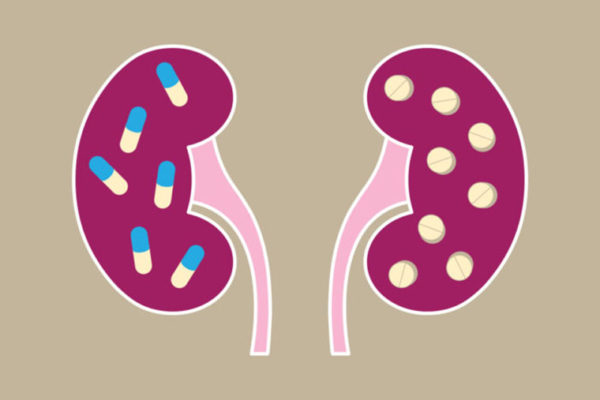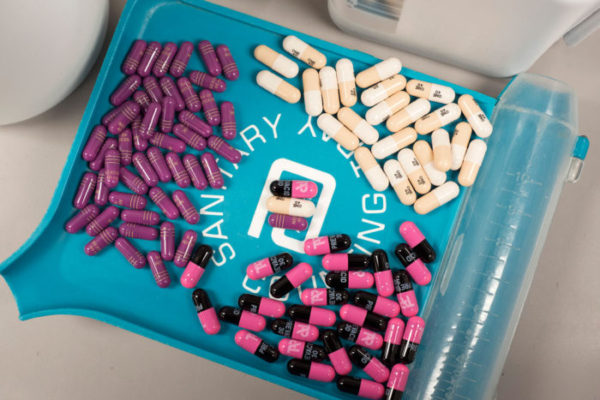Popular heartburn drugs linked to gradual yet ‘silent’ kidney damage
Taking popular heartburn medication for prolonged periods may lead to serious kidney damage, even in people who show no signs of kidney problems, according to researchers at the School of Medicine and the Veterans Affairs St. Louis Health Care System.
Popular heartburn drugs may cause serious kidney damage
Extended use of drugs to treat heartburn, ulcers and acid reflux may lead to serious kidney damage, including kidney failure, according to a study by researchers at Washington University School of Medicine in St. Louis and Veterans Affairs St. Louis Health Care System.
Good as gold
Researchers at Washington University in St. Louis, led by Srikanth Singamaneni, PhD, associate professor of materials science in the School of Engineering & Applied Science, are using color-shifting nanoparticles of gold, combined with specifically engineered artificial antibodies, to detect biochemical signs of kidney damage.
New director of Renal Division named
Benjamin D. Humphreys, MD, PhD, a highly regarded physician and scientist at Harvard Medical School, has been named the director of the Renal Division in the Department of Medicine at Washington University School of Medicine.
Cause of heart disease spurred by kidney syndrome found, neutralized
Chronic kidney disease sufferers are more likely to die of heart disease than kidney problems. However, it hasn’t been clear how kidney disease causes heart disease or what could be done to stop it. But a new study at the School of Medicine led by Keith A. Hruska, MD, has pinpointed the cause of a kidney-related syndrome linked to heart disease and found how to neutralize a protein that spurs heart disease.
WUSM researchers aim to increase African-American blood donations
Sen. Jim Talent, Michael DeBaun and Isaac Singleton Jr. help raise awareness about sickle cell disease at a recent stamp dedication ceremony.In sickle cell disease, red blood cells change from their normal round shape to a curved, or sickle-shape. Sickle-shaped cells become stuck in blood vessels, causing damage to tissues and organs. WUSM pediatric hematologist Michael DeBaun says that ongoing blood transfusion therapy is vitally important for children with sickle cell disease, and treatment requires a sufficient supply of blood from African-American donors. “Black History Month is an ideal time to encourage African-Americans to come out and donate blood,” he says.
WUSM researchers aim to increase African-American blood donations
Sen. Jim Talent, Michael DeBaun and Isaac Singleton Jr. help raise awareness about sickle cell disease at a recent stamp dedication ceremony.In sickle cell disease, red blood cells change from their normal round shape to a curved, or sickle-shape. Sickle-shaped cells become stuck in blood vessels, causing damage to tissues and organs. WUSM pediatric hematologist Michael DeBaun says that ongoing blood transfusion therapy is vitally important for children with sickle cell disease, and treatment requires a sufficient supply of blood from African-American donors. “Black History Month is an ideal time to encourage African-Americans to come out and donate blood,” he says.
Mouse model offers new explanation for kidney disease and failure
Rendering of a human kidney”Most experts believe that kidney disease is caused by an immune response against the kidney,” explains principal investigator Andrey S. Shaw, M.D., professor of pathology and immunology at Washington University School of Medicine in St. Louis. “But our evidence suggests that defects that are intrinsic to the kidney also contribute to kidney failure.”



